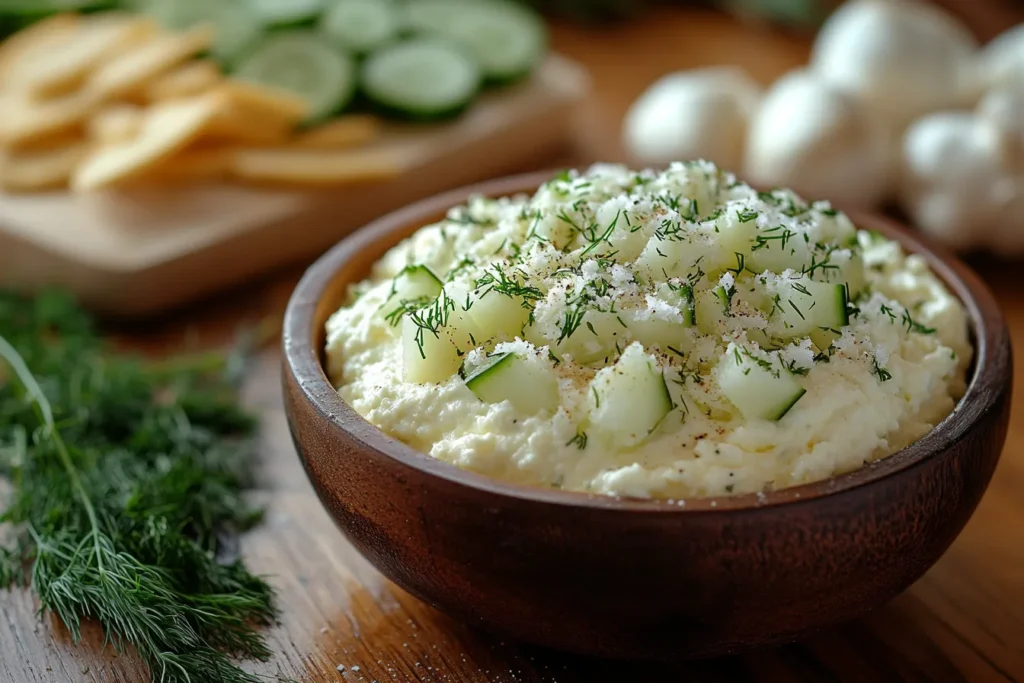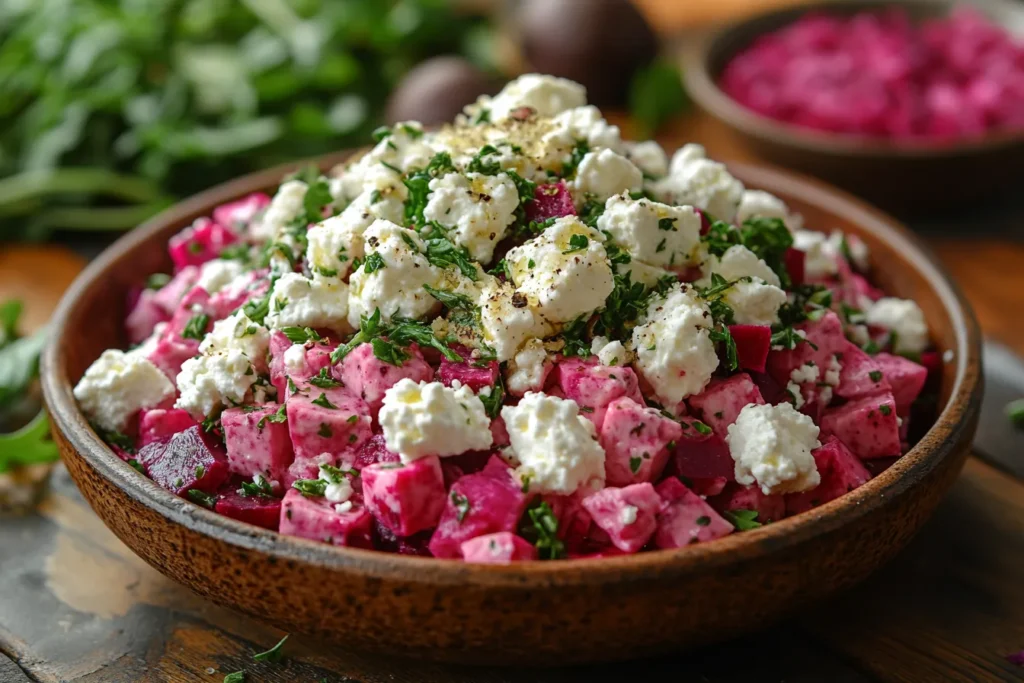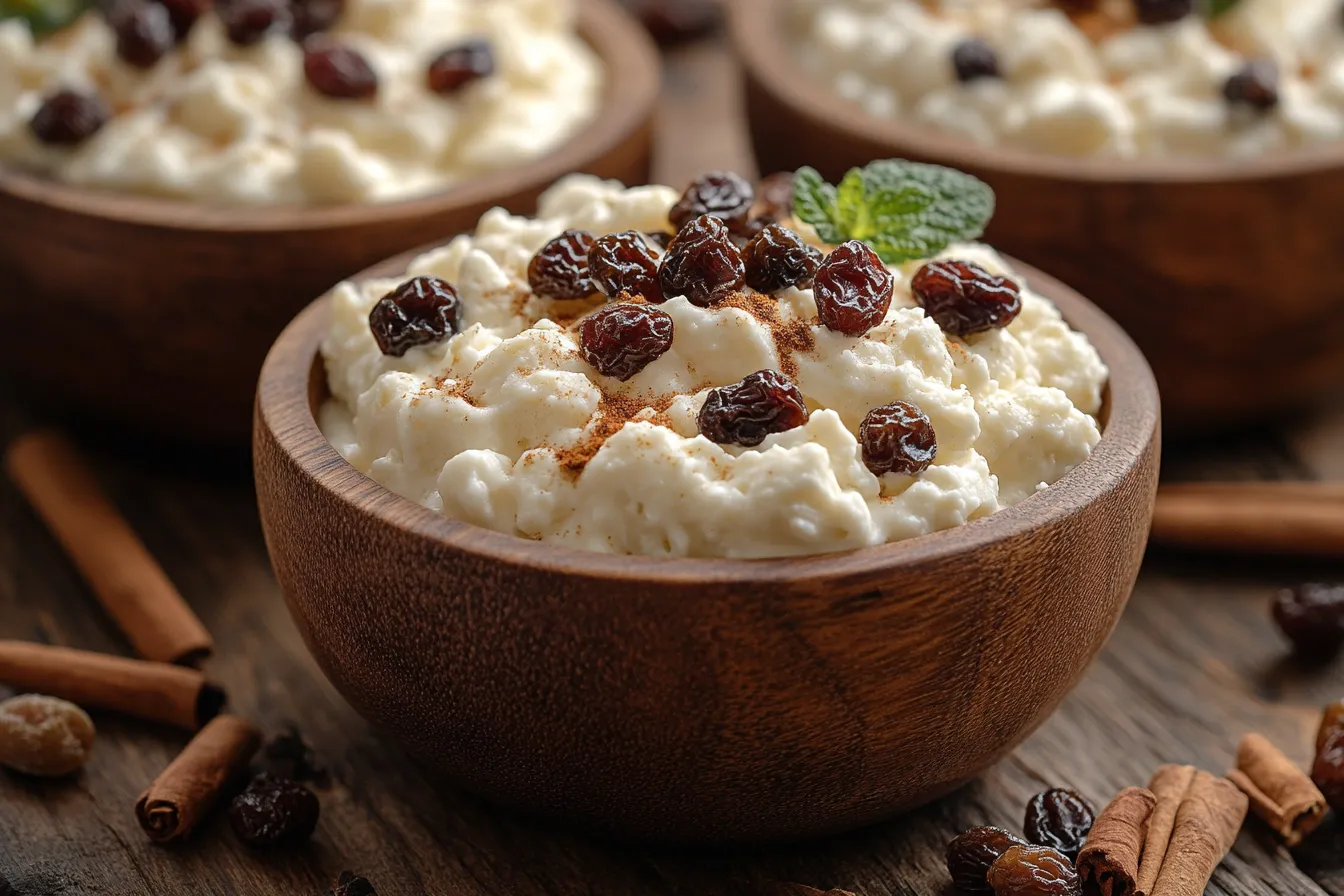Have you ever stared at a container of cottage cheese and wondered, What is the most popular way to eat cottage cheese? You’re not alone! Cottage cheese is one of those foods that people either love for its versatility or avoid because they’re unsure how to make it exciting. If you’ve ever felt stuck figuring out how to enjoy this creamy, protein-packed gem, you’re in the right place. Whether you’re looking for a quick snack, a healthy breakfast, or a unique way to spice up your meals, cottage cheese can be your go-to solution. Let’s explore some of the most popular—and delicious—ways to enjoy cottage cheese that fit right into your busy, health-conscious lifestyle. Get ready to transform this simple ingredient into your new favorite food!
1. Introduction to Cottage Cheese
What is Cottage Cheese?
Cottage cheese is a fresh, creamy dairy product made from the curds of pasteurized cow’s milk. Unlike aged cheeses, it’s known for its mild flavor and slightly tangy taste. Its soft texture and versatility make it a favorite ingredient in kitchens worldwide.
Historical Origins and Culinary Use
For centuries, cottage cheese has been a popular and nutritious part of people’s diets. Originating from simple cheesemaking techniques, it was traditionally crafted by curdling milk and straining the whey. Over time, its uses expanded from being a standalone snack to a key ingredient in both savory and sweet dishes.
2. Nutritional Value of Cottage Cheese
Protein Content and Health Benefits
Cottage cheese is a powerhouse of nutrition, especially protein. A single serving can provide up to 25 grams of protein, making it an excellent choice for muscle repair and growth. Additionally, it’s rich in:
- Calcium, for strong bones.
- B vitamins, which support energy production.
- Phosphorus, essential for cellular repair.
Comparison with Other Dairy Products
Compared to other dairy items like yogurt or cream cheese, cottage cheese is lower in calories and fat, yet high in protein. Its lightness makes it ideal for those on calorie-restricted diets or looking for a post-workout snack. Check out more recipes here.
3. The Versatility of Cottage Cheese in Diets

Suitable for Low-Carb and Keto Diets
Cottage cheese aligns perfectly with low-carb and keto diets. Its low carbohydrate content and high fat-to-protein ratio provide sustained energy without spiking blood sugar levels.
High-Protein Snack for Fitness Enthusiasts
Fitness enthusiasts often rely on cottage cheese as a post-workout recovery food. Combined with fresh fruit or nuts, it delivers the protein needed for muscle recovery while keeping calories in check. Check out more recipes here.
4. Popular Ways to Eat Cottage Cheese: Sweet vs. Savory
Sweet Variations
Cottage cheese pairs beautifully with natural sweeteners and fruits like honey, berries, or banana slices. It’s often enjoyed as:
- A topping for pancakes or waffles.
- A creamy base for parfaits.
- A filling in crepes or blintzes.
Savory Options
Savory cottage cheese dishes include combining it with herbs, spices, or vegetables. Popular combinations feature:
- Diced cucumbers and tomatoes with a sprinkle of black pepper.
- Avocado slices for a creamy, rich texture.
- As a spread on whole-grain toast.
5. Cottage Cheese with Fresh Fruits
Popular Fruits to Pair with Cottage Cheese
Pairing cottage cheese with fruits enhances both taste and nutrition. Some favorite options include:
- Strawberries: Their sweetness contrasts beautifully with the tang of the cheese.
- Pineapple: A tropical twist with juicy, sweet acidity.
- Apples: A crunchy, tart complement to the creamy texture.
Seasonal Fruit Combinations
Eating seasonally enhances flavors and variety. Consider:
- Summer: Peaches and berries.
- Fall: Pears and cranberries.
- Winter: Pomegranate seeds and citrus fruits.
6. Savory Toppings for Cottage Cheese
Pairing with Vegetables
Cottage cheese with vegetables creates a nutrient-dense snack or side dish. Popular pairings include:
- Chopped bell peppers for crunch and sweetness.
- Sliced radishes for a peppery bite.
- Spinach or kale for added greens.
Adding Spices and Herbs
Enhance cottage cheese with bold flavors like:
- Paprika or chili powder for heat.
- Dill, parsley, or chives for a fresh herbal touch.
- A drizzle of olive oil and garlic powder for a Mediterranean flair.
7. Cottage Cheese in Breakfast Recipes
Pancakes and Waffles
Incorporate cottage cheese into pancake or waffle batter for a protein-rich breakfast. It adds moisture, a creamy texture, and subtle tang to the dish. Check out more recipes here.
Toast and Bagels
Spread cottage cheese on toast or bagels, then top with:
- Sliced avocado and cherry tomatoes.
- Smoked salmon and capers.
- A drizzle of honey for a sweet twist.
8. Cottage Cheese as a Snack
Quick Cottage Cheese Bowl Ideas
For a quick, satisfying snack, assemble cottage cheese bowls with:
- Nuts and seeds for crunch.
- Sliced fruit for sweetness.
- A dash of cinnamon or nutmeg for warmth.
Portable Snacks for On-the-Go
Portable cottage cheese snacks include:
- Pre-packed single-serve containers paired with crackers.
- Small jars layered with fruit and granola.
- Stuffed mini bell peppers filled with herbed cottage cheese.
9. Incorporating Cottage Cheese into Salads
Leafy Greens and Cottage Cheese
Cottage cheese can elevate any leafy green salad. Toss it with:
- Spinach, arugula, and kale.
- Chopped walnuts and dried cranberries.
- A light balsamic vinaigrette.
Pasta and Grain-Based Salad Pairings
For hearty salads, combine cottage cheese with:
- Whole-grain pasta, cucumbers, and tomatoes.
- Quinoa, roasted vegetables, and a drizzle of lemon dressing.
- Barley or farro with sautéed mushrooms.
10. Blended and Whipped Cottage Cheese Dishes
Creamy Dips and Spreads
Blended cottage cheese creates smooth dips perfect for:
- Pairing with vegetable sticks or crackers.
- Spreading on bread or sandwiches.
- Mixing with garlic and herbs for a savory spread.
Cottage Cheese Smoothies
Add cottage cheese to smoothies for a protein boost. Blend it with:
- Fresh or frozen berries.
- A banana for natural sweetness.
- Almond milk for a creamy texture.
11. Cottage Cheese as a Substitute in Recipes
Replacing Ricotta in Lasagna
Cottage cheese serves as an excellent substitute for ricotta cheese in lasagna. Its lighter texture and tangy flavor blend seamlessly into the layers, offering:
- A healthier, lower-fat option.
- Enhanced creaminess when blended or whipped.
- A cost-effective alternative to ricotta.
Baking with Cottage Cheese
Cottage cheese can also elevate baked goods. When incorporated into recipes, it provides moisture and a subtle tang. Popular uses include:
- Adding it to muffin or bread batters for extra fluffiness.
- Using it in cheesecake as a partial cream cheese substitute.
- Mixing it into savory scones or biscuits.
12. Desserts Made with Cottage Cheese

Cheesecakes
Cottage cheese transforms traditional cheesecake into a lighter dessert. By blending it until smooth, it achieves:
- A creamy texture with fewer calories.
- A delightful tang that balances sweetness.
- Compatibility with fruit toppings like berries or citrus glaze.
Parfaits and Puddings
Layer cottage cheese in parfaits for a nutritious dessert. Pair it with:
- Granola, for crunch.
- Fresh fruits like mangoes or kiwi.
- A drizzle of honey or maple syrup.
For puddings, mix it with cocoa powder and a sweetener for a protein-packed chocolate dessert.
13. International Recipes Featuring Cottage Cheese
Eastern European Blintzes
Blintzes are thin pancakes filled with a mixture of cottage cheese, sugar, and vanilla, then pan-fried until golden. These are often served:
- With fruit preserves or powdered sugar.
- As a brunch or dessert option.
- Warm, with a dollop of sour cream.
Indian Paneer Dishes
Paneer, a cousin of cottage cheese, features prominently in Indian cuisine. Cottage cheese can replace paneer in dishes like:
- Palak Paneer: Spinach cooked with spices and cheese.
- Paneer Tikka: Marinated cheese cubes grilled to perfection.
- Paneer Butter Masala: A rich, tomato-based curry.
14. Cottage Cheese in Soups and Casseroles
Thickening Agent in Soups
Cottage cheese can add body and creaminess to soups without heavy cream. Simply blend it and stir into soups like:
- Tomato bisque.
- Creamy mushroom soup.
- Potato and leek soup.
Layering in Casseroles
Cottage cheese shines in casseroles, acting as a creamy layer between vegetables, meats, or pasta. Popular options include:
- Vegetable lasagna with cottage cheese layers.
- Chicken and broccoli bake.
- Zucchini and cottage cheese gratin.
15. Cottage Cheese with Crackers and Bread
Open-Faced Sandwich Ideas
Cottage cheese is the star ingredient for open-faced sandwiches. Try combinations like:
- Sliced cucumbers and dill on rye bread.
- Cherry tomatoes and arugula on sourdough.
- Smoked salmon with capers on a bagel.
Pairing with Different Types of Bread
Experiment with pairing cottage cheese with:
- Whole-grain bread for a nutty flavor.
- Pita bread, adding olives and roasted red peppers.
- Flatbread, garnished with fresh herbs.
16. Cooking Tips for Cottage Cheese Dishes
How to Choose the Right Cottage Cheese
When selecting cottage cheese, consider:
- Fat content: Choose low-fat or full-fat based on dietary needs.
- Curds size: Small curds for smoother recipes; large curds for texture.
- Additives: Look for varieties without unnecessary stabilizers or sugar.
Preparing Cottage Cheese for Cooking
To make it more versatile, you can:
- Blend it for a creamy consistency.
- Drain it to reduce moisture for baked recipes.
- Season it with salt, pepper, or herbs for savory dishes.
17. Storage and Shelf Life of Cottage Cheese
Proper Storage Tips
Extend the shelf life of cottage cheese by:
- Keeping it refrigerated at 4°C or below.
- Storing it in an airtight container.
- Avoiding cross-contamination with utensils.
Signs of Spoilage
Check for spoilage by:
- Observing changes in smell (sour or off odors).
- Noting alterations in texture, like sliminess.
- Looking for visible mold or discoloration.
18. Cottage Cheese for Kids
Child-Friendly Recipes
Make cottage cheese appealing to kids by:
- Creating cottage cheese fruit dips.
- Incorporating it into mac and cheese for extra protein.
- Spreading it on crackers with a drizzle of honey.
Making Cottage Cheese Appealing to Picky Eaters
To encourage picky eaters:
- Blend it into smoothies for a hidden protein boost.
- Add it to mashed potatoes or pasta sauces.
- Offer it as a pizza topping with melted cheese.
19. Cottage Cheese for Weight Loss
Low-Calorie Meal Ideas
Cottage cheese is ideal for weight loss due to its low calorie count and high protein content. Try:
- Cottage cheese bowls with vegetables and spices.
- As a spread on rice cakes with avocado.
- In salads, replacing heavier dressings.
Portion Control and Serving Sizes
Stick to recommended serving sizes (approximately ½ cup) to avoid overconsumption. Pair it with fiber-rich vegetables or fruits for satiety.
20. Myths and Misconceptions About Cottage Cheese

Common Misunderstandings
Many people believe that cottage cheese:
- Is bland and unappealing. In reality, it can be easily enhanced with spices, fruits, or herbs.
- Is only for dieting. It’s versatile enough for any lifestyle or cuisine.
Debunking Nutritional Myths
Contrary to myths:
- Cottage cheese is not high in lactose; it’s tolerable for many lactose-sensitive individuals.
- It’s not just a “diet food” but a nutrient-rich option for all.
21. Cottage Cheese in Fitness Diets
Pre-Workout and Post-Workout Meal Ideas
Cottage cheese plays a vital role in fitness diets due to its high protein and low-fat content. Check out more recipes here.
Pre-Workout Meals:
- Cottage cheese with a handful of nuts or seeds provides sustained energy.
- A slice of whole-grain toast topped with cottage cheese and a drizzle of honey offers a balanced mix of carbs and protein.
Post-Workout Meals:
- A bowl of cottage cheese mixed with pineapple for muscle recovery.
- Cottage cheese blended into a smoothie with banana and protein powder for a replenishing drink.
Meal Prep with Cottage Cheese
For meal prep, incorporate cottage cheese into:
- Egg muffins for a protein-rich, grab-and-go breakfast.
- Pre-portioned salads with a cottage cheese-based dressing.
- Ready-to-eat snack containers with vegetables, cottage cheese, and whole-grain crackers.
22. Combining Cottage Cheese with Nuts and Seeds
Best Nuts to Pair with Cottage Cheese
The creamy texture of cottage cheese complements the crunch of nuts like:
- Almonds for their subtle sweetness.
- Walnuts for their earthy richness.
- Pecans, adding a buttery flavor.
Health Benefits of Adding Seeds
Seeds not only enhance flavor but also boost the nutritional profile. Popular options include:
- Chia seeds, which add fiber and omega-3s.
- Flaxseeds, a source of antioxidants.
- Sunflower seeds for added protein and vitamin E.
23. Fermented Cottage Cheese and Probiotic Benefits
Role in Gut Health
Fermented cottage cheese contains probiotics, beneficial bacteria that:
- Promote digestion and nutrient absorption.
- Support immune health.
- Reduce symptoms of gastrointestinal disorders.
Homemade Probiotic Cottage Cheese
You can make probiotic-rich cottage cheese by:
- Adding live cultures to milk during the curdling process.
- Allowing it to ferment naturally before straining.
- Pairing it with prebiotic-rich foods like bananas for enhanced gut health.
24. How to Make Cottage Cheese at Home
Simple Homemade Recipe
To make cottage cheese at home:
- Heat milk until it begins to simmer.
- Incorporate a tangy element such as lemon juice or vinegar.
- Allow curds to form, then strain the mixture through a cheesecloth.
- Add salt or other seasonings as desired.
Flavor Variations for Homemade Cottage Cheese
Experiment with flavors by mixing in:
- Fresh herbs like parsley and thyme.
- Crushed garlic for a savory twist.
- Honey and vanilla for a sweet version.
25. Cottage Cheese in Gourmet Dishes
Gourmet Appetizers
Elevate your appetizers using cottage cheese in:
- Stuffed cherry tomatoes or bell peppers.
- Crostini topped with whipped cottage cheese, smoked salmon, and dill.
- Cottage cheese mousse with balsamic reduction.
Elevated Dinner Recipes
Cottage cheese adds depth to gourmet dinner plates, such as:
- Spinach and cottage cheese-stuffed chicken breasts.
- Cottage cheese risotto with roasted asparagus.
- Grilled portobello mushrooms filled with herbed cottage cheese.
26. Vegan Alternatives to Cottage Cheese
Plant-Based Substitutes
For those seeking vegan options, alternatives include:
- Tofu blended with plant-based yogurt.
- Cashew-based cottage cheese.
- Store-bought vegan cottage cheese brands.
Recipes Using Vegan Cottage Cheese
Use vegan cottage cheese in:
- Dairy-free lasagna.
- Vegan cheesecakes with a nut-based crust.
- As a spread for crackers and vegetables.
27. Exploring Regional Variations of Cottage Cheese Consumption
Cottage Cheese Around the World
Different cultures have unique ways of enjoying cottage cheese:
- In Europe, it’s often paired with rye bread or added to dumpling fillings.
- In the U.S., it’s a popular snack with fruits or vegetables.
- In South Asia, it’s used in rich curries and stir-fries.
Regional Ingredients and Combinations
Incorporate local flavors by pairing cottage cheese with:
- Mediterranean olives and sun-dried tomatoes.
- Indian spices like cumin and turmeric.
- Mexican salsa and avocado.
28. Cottage Cheese as a Versatile Ingredient in Diet Plans
Meal Plans for Diabetics
Cottage cheese is low in carbs and suitable for diabetics. Suggestions include:
- Mixing it with cucumber and dill for a light snack.
- Adding it to quinoa bowls with vegetables.
- Using it as a base for low-sugar desserts.
Gluten-Free Recipes
Cottage cheese shines in gluten-free recipes like:
- Zucchini noodles with cottage cheese and marinara sauce.
- Gluten-free pancakes or waffles using cottage cheese batter.
- Cottage cheese-stuffed bell peppers.
29. The Role of Cottage Cheese in Cultural Cuisine
Traditional Recipes
Cottage cheese appears in various traditional dishes, such as:
- Polish pierogi filled with a cottage cheese mixture.
- Russian syrniki, cottage cheese pancakes served with jam or sour cream.
- Italian manicotti, where it replaces ricotta in the stuffing.
Holiday Dishes
Incorporate cottage cheese into festive meals:
- Cottage cheese kugel for Passover.
- Easter cheesecakes with a cottage cheese base.
- Thanksgiving dips featuring whipped cottage cheese and herbs.
30. Conclusion: Embracing the Popularity of Cottage Cheese
Recap of Popular Ways to Eat Cottage Cheese
Cottage cheese has proven its versatility in countless recipes, from breakfast staples to gourmet dishes. Its health benefits, affordability, and adaptability make it a must-have in every kitchen. Check out more recipes here.
Encouragement to Experiment with Recipes
Whether you’re a fitness enthusiast, a foodie, or just exploring healthier eating options, cottage cheese can elevate your culinary experience. Experiment with combinations, try international recipes, and discover your favorite ways to enjoy this timeless ingredient.
FAQs About Cottage Cheese
- Is cottage cheese a good source of protein? Yes, it’s an excellent source of protein, providing around 25 grams per cup.
- Can lactose-intolerant people eat cottage cheese? Many can tolerate it in small amounts due to its lower lactose content, but it varies by individual.
- What is the typical shelf life of cottage cheese when stored in the refrigerator? Typically, it lasts 7–10 days when stored properly.
- Is cottage cheese suitable for weight loss? Yes, it’s low in calories and high in protein, helping with satiety and weight management.
- Can I freeze cottage cheese? Yes, though it may affect texture. Use thawed cottage cheese in cooked dishes.
- What’s the best way to season cottage cheese? Try salt, pepper, paprika, or fresh herbs like dill.
- Is cottage cheese keto-friendly? Absolutely, due to its low carbohydrate content.
- Can I eat cottage cheese every day? Yes, it’s safe and nutritious for daily consumption in moderation.
- What’s the difference between small-curd and large-curd cottage cheese? Small-curd is smoother, while large-curd has a chunkier texture.
- What are some good alternatives to cottage cheese for use in recipes? Ricotta, Greek yogurt, or blended tofu are good substitutes.
